If you haven’t hopped on the zero-proof beverage bandwagon yet, your invitation has arrived. Not only does drinking more alcohol than the standard rec of one drink per day for women and two for men raise blood pressure, but it can also make BP medications less effective, according to Dr. Jean. In fact, research shows that alcohol has a “direct and linear” relationship with systolic blood pressure (the first number in your BP reading), meaning that the more you drink, the higher that number creeps. While plenty of health conditions make you painfully aware of their presence via any number of impossible-to-ignore symptoms, high blood pressure (a.k.a. hypertension) can be a sneakier beast. You can literally walk around all day, every day without a clue that your blood pressure numbers are higher than they should be—many people don’t have physical symptoms that they can feel. Although people who have high blood pressure (which is nearly half of adults in the US) might not have any discomfort from it most of the time, it’s really serious.
In the age of working from home, it’s easier than ever to accidentally sit at your desk all day. Study after study after study has shown that interrupting prolonged sitting time at work can reduce hypertension, working in tandem with other practices like exercising, teen drug abuse eating well, and getting enough sleep. Simply get up for a bit every 20 to 30 minutes, and at least every hour—even non-exercise activities like standing and light walking really can lower BP over time, especially if you start to sit less and less.
There are similar devices on the market to get your diaphragm and other breathing muscles in better shape — and to possibly lower your blood pressure. “If that’s maintained over the long term, that’s enough to decrease the risk for cardiovascular disease by 25 percent,” Craighead says. The third facet is stress relief techniques such as yoga, introspection, and other mindfulness exercises. Freeman says that for many patients, the prospect of taking a simple medication is seen as easier and more appealing than undergoing lifestyle changes. By the end of this period, half of the participants had lowered their blood pressure to a recommended level while other participants also attained lower blood pressure.
Studies have demonstrated small improvements in blood pressure that occur in people taking calcium, potassium, and magnesium supplements, but research results can be mixed. One review of studies on vitamin D, for example, found evidence that people with adequate vitamin D intake (deficiencies are common) had a lower risk of hypertension, but it, too, called for more study. Regular exercise, even as simple as walking, seems to be just as effective at lowering alcohol use disorder blood pressure as commonly used BP drugs, according to a 2018 meta-analysis of hundreds of studies. Exercise strengthens the heart, meaning it doesn’t have to work as hard to pump blood. Brandie D. Williams, M.D., a cardiologist at Texas Health Stephenville and Texas Health Physicians Group, recommends shooting for 30 minutes of cardio on most days. Over time, you can keep challenging your ticker by increasing speed, upping distance, or adding weights.
Cut down on salt
The randomized controlled trial included more than 200 adults from the Providence, Rhode Island, area who had elevated blood pressure. But when Hampshere, a Florida-based real estate investor, lost 80 pounds over a period of nine months, his blood pressure dipped down to normal. With the extra weight gone — and a daily game of pickleball to keep it off — Hampshere’s doctor let him experiment with going off his blood pressure medication. And by Hampshere’s next exam, his doctor agreed the medicine wasn’t needed anymore. Sodium intake is a particularly harmful issue in the typical American diet, according to cardiologist Tariq Hafiz, medical director at Pritkin Longevity Center in Miami.
- Up to half of sleep apnea patients also live with hypertension, possibly due to high levels of aldosterone, a hormone that can boost blood pressure.
- In fact, getting 150 minutes per week of moderate exercise, such as walking, or 75 minutes per week of vigorous exercise, such as running, can help lower blood pressure and improve heart health (3).
- Here are a few more unexpected strategies, though it’s important to note that if you’re on blood pressure medication, you should never stop taking it without consulting your doctor.
Once high blood pressure (HBP) is under control with medication, you can try using lifestyle techniques to lower your blood pressure and reduce your need for the medication. Using techniques like changes to your diet and lifestyle in combination with medication will help you manage your condition and stay healthy. Lifestyle modifications are effective in controlling high blood pressure. A healthy lifestyle can avoid, delay, or reduce the need for blood pressure medications. You can add in strength training to make your muscles stronger and more efficient, as well as lower-intensity exercises like yoga, which can also help reduce stress.
Sodium is a notorious foe for anyone trying to get their blood pressure down, so minding the salt in your diet is a must-do. Though most Americans consume upwards of 3,400 milligrams of sodium per day (mostly from packaged and restaurant foods), the AHA recommends sticking below 2,300 milligrams—and ideally below 1,500 mg if you have high blood pressure. Research suggests this change alone can pull your BP reading down by up to eight mmHg. Lifestyle tweaks such as losing weight, reducing salt intake, exercising, limiting alcohol and lowering stress are all effective ways to wrangle hypertension, research shows. Depending on the level of your blood pressure, you may need to take medication to get it under control.
People who were categorized as overweight were able to lower their risk of obesity by 64 percent by stepping it up and increasing their daily step count to 11,000. If you fall into the elevated category, then, with a consistent change in diet and exercise, you can likely bring down your blood pressure without needing medications. These results are equivalent to the effects of standard blood pressure adhd medication mistakes and dosage myths medications. In all, 93 percent of the participants were able to reduce their dose or eliminate medications entirely. In addition to the diet, participants get regular exercise, drink adequate amounts of water, and get a good night’s sleep. A new program developed by a research team focuses on diet, exercise, and sleep as the keys to lowering your blood pressure without using drugs.
A stressful situation can raise your blood pressure temporarily, and chronic stress can raise your blood pressure long term. This is why stress management is one of the best ways to naturally lower blood pressure. Getting poor-quality sleep can increase your risk of high blood pressure. The American Heart Association (AHA) recommends six to eight hours of sleep per night to avoid cardiovascular (heart) issues. In order to get the most accurate blood pressure reading, avoid drinking coffee (or any caffeinated beverages) three hours before measurement.
Take 8,200 steps a day
You may have heard that you need to get in 10,000 steps a day for good health, but it looks like 8,200 may be the magic number, according to recent research from Vanderbilt University Medical Center in Nashville, Tennessee. The study, which included more than 6,000 people with a median age of 57, used electronic health records as well as data from their Fitbit devices to reach this conclusion. High-intensity breathing seems to work by promoting the production of nitric oxide, a heart-helpful compound in the cells that line blood vessel walls, Craighead says. Regular breathing workouts help to expand blood vessels, improving blood flow. You can also explore the DASH Diet (Dietary Approaches to Stop Hypertension) and a Mediterranean diet approach. Diet is one big component of blood pressure reduction, but so is exercise.
Research shows DASH can reduce BP in just four weeks and even aid weight loss. The best news is that when you take a dedicated approach, you can bring your high blood pressure down into a normal, healthy range in a relatively short period of time—as quickly as four to six weeks in some cases. Before you pick your approach, however, you need to understand your numbers, the risk they present, and whether medications are necessary, at least in the short term.
Can Drinking Water Lower Blood Pressure?
When you get a blood pressure reading, the systolic blood pressure number is on top, and the diastolic blood pressure number is on the bottom. Loud, incessant snoring is a symptom of obstructive sleep apnea (OSA), a disorder that causes brief but dangerous breathing interruptions. Up to half of sleep apnea patients also live with hypertension, possibly due to high levels of aldosterone, a hormone that can boost blood pressure. Fixing sleep apnea could be helpful for improving BP, says Robert Greenfield, M.D., medical director of Non-Invasive Cardiology & Cardiac Rehabilitation at MemorialCare Heart & Vascular Institute. One recent meta-analysis published in Hypertension found that taking a multi-strain probiotic (that contains more than 10 billion CFUs, or colony-forming units) for at least eight weeks has a positive impact on blood pressure.
What is high blood pressure?
The study of 208 people with somewhat elevated blood pressure found that those who practiced tai chi for three months significantly decreased their blood pressure, compared with those who didn’t. Managing stress and stress-related habits can help reverse the condition. Eating healthy and in moderation, quitting smoking, and avoiding alcohol can often reduce the temporary increase in blood pressure without needing medications. Freeman says that for patients who have mildly elevated blood pressure, he’ll recommend a multi-week program of lifestyle changes. A small 2020 study found that people who drank an additional two bottles of water on top of their usual daily intake experienced decreased systolic blood pressure. While calcium supplements haven’t been conclusively shown to lower blood pressure, calcium-rich diets do seem to be linked to healthy blood pressure levels (34).
But even for patients who are prescribed medications for high blood pressure, lifestyle will always be a factor. If a person is in hypertensive crisis (a dangerous, sudden spike in blood pressure in which the systolic pressure is 180 mmHg or higher, and/or the diastolic pressure is 120 mmHg or higher), they require immediate medical attention. If you have trouble getting enough quality sleep, consider talking to your healthcare provider. They may recommend a sleep study to see if there are other underlying causes, like sleep apnea, or lifestyle changes to encourage better sleep habits.
Obarzanek suggests treading with caution around packaged and processed foods, including secret salt bombs like bread, pizza, poultry, soup, and sandwiches. Stress can wreak havoc on pretty much every aspect of our health, so it’s no shock that it leaves its mark on our blood pressure. A growing body of scientific evidence identifies that social stressors, work stress, as well as low socioeconomic status and discrimination, all increase the risk of hypertension. Recent Chinese research suggests this gentle exercise, which involves slow, flowing motions and deep breathing, can improve hypertension.










